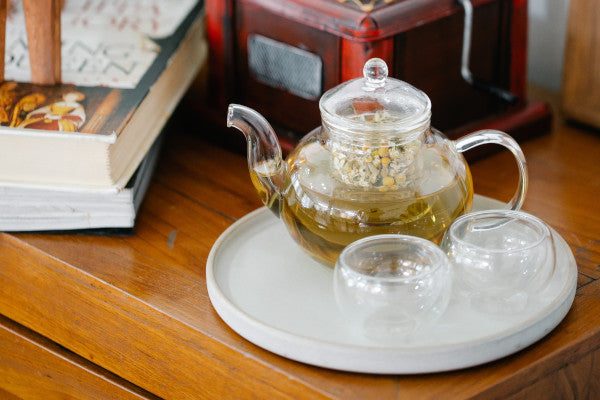Rosehip infusion, or Tapaculo, is probably one of the most famous infusions of the Middle Ages. Rosehip was already used as a component of various medicines, and today, rosehip infusion is also an ideal infusion or tea for winter.
Rosehip infusion can help you regain vitality. This effect was already known to the ancient Greeks, where the fruit was valued as a remedy and named "fruit of the gods." Incidentally, rosehip is a false fruit, as the seeds or "nuts" inside are the fruit.
The most valuable ingredients of rosehips are found in the coating of the "nuts," the skin and pulp of these wild berries. Why is rosehip so healthy? The vitamin C content of rosehips is second only to sea buckthorn, so a tapaculo infusion or rosehip jam is very helpful in preventing colds. Even for rheumatism, an extract of these fruits can provide relief. Along with calcium and vitamin C, rosehip strengthens the gums, because 100 g of fresh rosehips contain 400–5,000 mg of vitamin C.
In addition, the organic Rosehip infusion strengthens the immune system. This effect is created by the natural colorant lycopene, as the body uses lycopene to form vitamin A, which protects cells from free radicals and aging.
It also helps calm the nerves thanks to its vitamin B1 content, and the iron it provides helps with blood formation. Its diuretic tannins deacidify. And on short autumn days, rosehip, with its stimulating effect on the glands, lifts the mood.
Thanks to the high-quality ingredients in organic rosehip infusion , it's ideal for drinking as an infusion or tea, especially during the cold season. Its rich vitamin C content helps strengthen the body's natural defenses and immune system.
For colds, bronchitis, and other illnesses, rosehip infusion can help relieve fever and is mildly refreshing. To support the kidneys and urinary tract, even in chronic kidney and bladder diseases, as well as stomach and intestinal disorders, organic rosehip infusion can be extremely helpful.
Benefits of Rosehip Tea or Infusion or Tapaculo
Before learning about the benefits of rosehip tea or infusion, let's look at the process of harvesting the fruit from which it is made and which gives it its excellent properties:
Rosehip harvesting begins in mid-September and ends in mid-November. When picking, you should observe the fruit and ensure it is slightly soft and, of course, ripe.
If you live in colder areas, there is no problem if a frost has passed before picking the fruits because it does not affect the preparation of the rosehip infusion and only the rosehip peel is used.
In addition to rosehip infusion, there are other infusions that offer similar properties for those who don't enjoy its flavor. Rosehip is known for being a rich source of vitamin C and antioxidants, making it beneficial for health. However, it's not the only option available.
Alternatives include berry infusions , such as orange, lemon, pineapple, and strawberry, all rich in vitamin C and with antioxidant properties. You can also consider other infusions such as mint , chamomile, ginger, or turmeric, all of which have health benefits.
It's important to remember that each infusion has its own specific composition and properties, so it's advisable to do your research and choose the option that best suits your needs and tastes. This way, you can enjoy the health benefits that infusions offer without sacrificing flavor.
Rosehip in the form of an infusion
Dried rosehip can be used to make an excellent herbal infusion , which has a pleasant, sour and fresh taste and contains an abundant amount of vitamin C.
Rosehip and pregnancy
Organic rosehip infusion can be drunk without any problems during pregnancy, unless you suffer from stomach disorders, in which case it should be consumed in moderation.
Another alternative is to prepare a fresh rosehip or tapaculo jam, which is even more effective and is recommended for the diet of people with a significant vitamin C deficiency. One teaspoon of rosehip jam covers the vitamin C requirement of an adult.
Incidentally, as a historical detail, during World War II, the British assigned schoolchildren to collect rosehips. These fruits were used to make rosehip syrup, an excellent source of vitamin C, which was important given the shortage of Spanish oranges due to the German U-boat blockade.
Rosehip, like other fruit infusions , has a pleasant flavor that makes the drink a pleasure for the senses.






